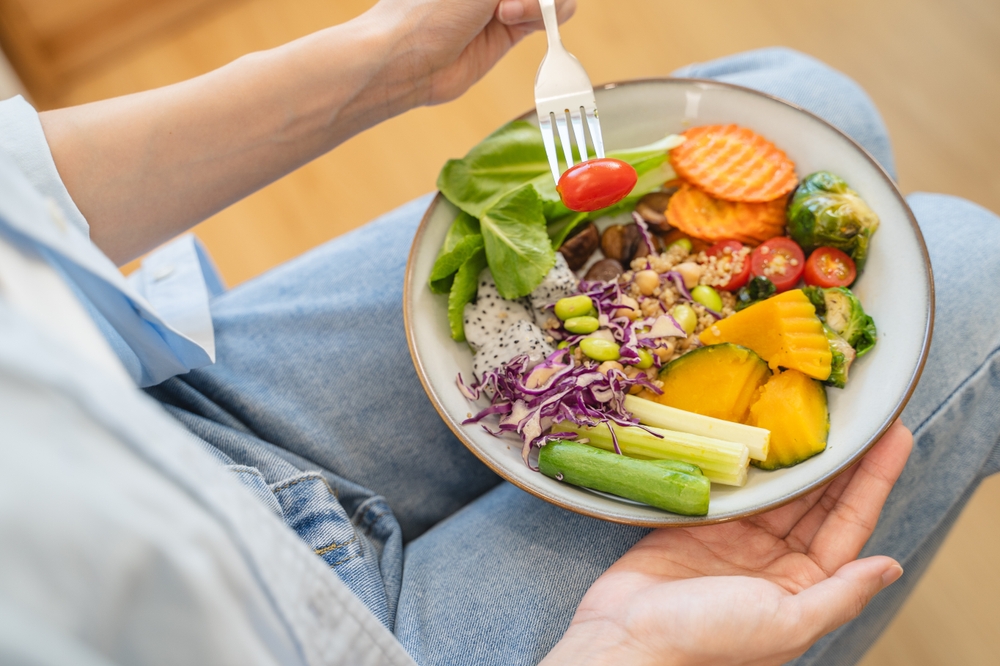10 Myths About Anti-Inflammatory Diets
The concept of an “anti-inflammatory diet” has gained significant attention over the past decade. It promises to reduce chronic inflammation, a key driver behind many of today’s most prevalent health conditions, including heart disease, diabetes, arthritis, and even certain cancers. As interest grows, so does the amount of information—and misinformation—circulating online and in health communities. This flood of content can make it incredibly difficult to separate fact from fiction. Many people are left wondering if they need to completely overhaul their lives, eliminate entire food groups, or invest in expensive supplements to reap the benefits.
The truth is, while nutrition plays a powerful role in managing inflammation, many popular beliefs about anti-inflammatory eating are oversimplified or outright incorrect. These myths can lead to unnecessary dietary restrictions, frustration, and a sense of failure when results don’t materialize as promised. The goal of an anti-inflammatory lifestyle isn’t about perfection; it’s about making sustainable, evidence-based choices that support your body’s long-term health.
In this guide, we will debunk 10 of the most common myths about anti-inflammatory diets. We’ll explore what the science actually says about inflammation and diet, provide clarity on confusing topics like gluten and dairy, and offer practical, actionable advice. Our aim is to empower you with the knowledge to build a nourishing eating pattern that works for you, without the stress and confusion often associated with popular diet trends.
Myth 1: An Anti-Inflammatory Diet is a Strict, Specific Diet Plan
One of the most persistent anti-inflammatory diet myths is that it’s a rigid, one-size-fits-all program with a strict list of “good” and “bad” foods. Many people imagine a plan similar to Whole30, keto, or paleo, where specific food groups are completely eliminated. This misconception often leads to the belief that to fight inflammation, you must follow a highly restrictive and complicated set of rules.
The Reality: It’s a Flexible Eating Pattern
An anti-inflammatory diet isn’t a formal “diet” in the traditional sense. Instead, it is an eating pattern or style that emphasizes whole, nutrient-dense foods known to combat inflammation while minimizing foods that can promote it. Think of it less as a set of rules and more as a set of principles.
Several well-researched dietary patterns fit under the anti-inflammatory umbrella, with the Mediterranean diet being the most studied and widely recommended. This pattern is rich in:
- Fruits and vegetables
- Whole grains
- Legumes (beans, lentils)
- Nuts and seeds
- Healthy fats like olive oil
- Fish and seafood
These foods are packed with antioxidants, polyphenols, fiber, and healthy fats (like omega-3s), all of which work together to regulate the body’s inflammatory response. The key isn’t about following one specific plan but about shifting the overall balance of your plate toward these health-promoting foods.
Personalization is Key
Your ideal anti-inflammatory pattern may look different from someone else’s based on your unique health status, genetics, food sensitivities, and cultural background. For example, someone with celiac disease must avoid gluten, while someone with a dairy allergy must avoid milk products. However, these are specific medical necessities, not universal rules for everyone.
Working with a nutrition professional can help you tailor an anti-inflammatory approach to your specific needs. Through targeted nutrition therapy for medical conditions, a registered dietitian can help you identify personal inflammation triggers and create a sustainable plan that doesn’t feel restrictive. The focus should always be on what you can add to your diet—more colorful vegetables, more healthy fats, more fiber—rather than what you must take away. This positive and inclusive approach is far more effective and sustainable for long-term health.
Myth 2: You Must Eliminate All Gluten and Dairy
Perhaps no two food groups are more vilified in discussions about inflammation than gluten and dairy. A quick search online will yield countless articles and testimonials claiming that eliminating these foods is the first and most crucial step to reducing inflammation. This has led many health-conscious individuals to cut out bread, pasta, cheese, and yogurt, often without a clear medical reason.
The Nuance of Gluten and Inflammation
Gluten is a protein found in wheat, barley, and rye. For a small portion of the population, gluten is a significant trigger for inflammation.
- Celiac Disease: For the approximately 1% of the population with celiac disease, consuming gluten triggers a severe autoimmune response that damages the small intestine and causes systemic inflammation. For these individuals, a strict, lifelong gluten-free diet is non-negotiable.
- Non-Celiac Gluten Sensitivity (NCGS): Some individuals experience symptoms like bloating, headaches, fatigue, and joint pain after eating gluten, even though they test negative for celiac disease and wheat allergy. This condition, known as NCGS, is real, but its underlying mechanisms are still being researched. For this group, avoiding gluten can lead to a significant reduction in symptoms and inflammation.
However, for the vast majority of the population, there is little to no scientific evidence to suggest that gluten itself is inherently inflammatory. Many people who feel better on a gluten-free diet may be experiencing a placebo effect or benefiting from the fact that they are cutting out refined, processed carbohydrates (like white bread, pastries, and crackers) and replacing them with more whole foods like fruits and vegetables.
The Dairy Debate: Friend or Foe?
The relationship between dairy and inflammation is equally complex and widely misunderstood. The idea that dairy is pro-inflammatory stems from a few sources: the presence of saturated fat, the potential for allergies, and hormonal concerns.
Here’s what the research shows:
- Allergies and Intolerance: For individuals with a true milk allergy, dairy protein triggers an immune response and inflammation. For those with lactose intolerance, the inability to digest milk sugar (lactose) causes digestive distress but is not a classic inflammatory reaction.
- Saturated Fat: While some dairy products, like full-fat cheese and butter, are high in saturated fat, which can be pro-inflammatory in excess, not all saturated fats behave the same way in the body.
- Overall Evidence: A large body of scientific evidence, including multiple systematic reviews and meta-analyses, suggests that for most people, dairy products have a neutral or even a slightly anti-inflammatory effect. Fermented dairy products like yogurt and kefir, in particular, contain probiotics that support gut health, which is a cornerstone of a healthy immune system and a balanced inflammatory response.
The bottom line is that unless you have a diagnosed allergy, intolerance, or sensitivity, there is no compelling scientific reason to eliminate gluten or dairy to fight inflammation. A balanced approach that includes whole-grain sources of gluten and fermented dairy can be a valuable part of an anti-inflammatory diet. If you suspect these foods are causing issues, it’s best to work with a healthcare provider to get properly tested rather than self-diagnosing. You can find more information on common dietary concerns in our FAQ section.
Myth 3: All “Nightshade” Vegetables Are Pro-Inflammatory
The “nightshade” myth is one that stubbornly persists in wellness circles. Nightshades are a family of plants that include tomatoes, potatoes (not sweet potatoes), eggplants, and all types of peppers (bell peppers, chili peppers). The theory is that these vegetables contain compounds called alkaloids, such as solanine, which are said to trigger inflammation, particularly arthritis flare-ups. This has led many people, especially those with joint pain, to avoid this entire category of nutritious vegetables.
What Are Alkaloids and Are They Harmful?
Alkaloids are naturally occurring chemical compounds found in many plants. They act as a plant’s natural defense system against insects and pests. It is true that in extremely high concentrations, alkaloids can be toxic. However, the amount found in the edible parts of nightshade vegetables is incredibly low and considered safe for human consumption. The body is well-equipped to process and excrete these compounds without issue.
What Does the Science Say?
There is currently no large-scale, credible scientific research that supports the claim that nightshade vegetables cause inflammation in the general population. In fact, the opposite is more likely to be true. Nightshade vegetables are packed with powerful anti-inflammatory nutrients:
- Tomatoes are rich in lycopene, a potent antioxidant linked to a reduced risk of heart disease and certain cancers.
- Peppers are an excellent source of vitamin C and quercetin, both of which have strong anti-inflammatory properties.
- Eggplants contain anthocyanins, the same antioxidants found in berries, which are known to fight inflammation and oxidative stress.
- Potatoes, especially when eaten with the skin on, are a good source of potassium and resistant starch, which benefits gut health.
For the vast majority of people, the health benefits of consuming these nutrient-dense vegetables far outweigh any theoretical risk from alkaloids.
The Exception: Individual Sensitivity
While the universal claim against nightshades is unfounded, it is possible for a very small number of individuals to have a specific sensitivity to them. This is particularly true for some people with autoimmune conditions like rheumatoid arthritis or inflammatory bowel disease (IBD). In these cases, the immune system may be hyper-reactive, and certain food components might trigger a flare-up.
If you suspect nightshades are a problem for you, an elimination diet under the guidance of a registered dietitian is the best way to find out. This involves removing them for a few weeks and then reintroducing them one by one to see if they cause a reaction. However, for most people, removing these healthy and delicious vegetables from an anti-inflammatory diet would be a mistake.
Myth 4: You Need to Buy Expensive “Superfood” Supplements
The wellness industry is booming with supplements marketed as potent anti-inflammatory agents. Powders, pills, and tinctures featuring turmeric, ginger, spirulina, fish oil, and various “superfood” blends line the shelves of health food stores, all promising a quick fix for inflammation. This leads many to believe that supplements are a necessary, or even primary, component of an anti-inflammatory lifestyle.
The “Food First” Principle
While certain supplements can be beneficial in specific situations, they should never be seen as a substitute for a healthy diet. The “food first” approach is the cornerstone of effective nutrition. Whole foods contain a complex matrix of vitamins, minerals, fiber, and thousands of phytochemicals that work together synergistically. A turmeric root, for example, contains not just curcumin (its main active compound) but hundreds of other compounds that support its absorption and function. You cannot replicate this synergy in a pill.
Supplements are, by definition, meant to supplement the diet, not replace it. Relying on pills to counteract the effects of a diet high in processed foods, sugar, and unhealthy fats is an ineffective strategy. The foundation of managing inflammation will always be your daily eating pattern.
When Can Supplements Be Helpful?
That said, supplements can play a supportive role in an anti-inflammatory plan, especially in a few key instances:
- Omega-3 Fatty Acids: Many people do not consume enough oily fish (like salmon, mackerel, or sardines) to get an adequate amount of the anti-inflammatory omega-3s, EPA and DHA. In this case, a high-quality fish or algal oil supplement can be a valuable addition.
- Curcumin (from Turmeric): While using turmeric in cooking is great, the amount of curcumin you get is relatively small. For therapeutic doses aimed at conditions like osteoarthritis, a concentrated curcumin supplement (often combined with piperine from black pepper to enhance absorption) may be recommended by a healthcare provider.
- Vitamin D: Often called the “sunshine vitamin,” Vitamin D plays a crucial role in regulating the immune system. Many people have insufficient levels, especially in colder climates. Since it’s found in very few foods, supplementation is often necessary.
Caution and Quality Matter
The supplement industry is not as tightly regulated as the pharmaceutical industry. This means that the quality, purity, and potency of products can vary widely. Some supplements may not contain the amount of the active ingredient listed on the label, while others could be contaminated with heavy metals or other harmful substances.
Before starting any new supplement for inflammation, it is essential to contact us or another qualified healthcare professional. A dietitian can help you determine if you actually need a supplement, recommend a proper dosage, and guide you toward reputable brands that have been third-party tested for quality and safety.
Myth 5: An Anti-Inflammatory Diet Is Only for People with Medical Conditions
Many people associate anti-inflammatory diets exclusively with managing specific diseases like rheumatoid arthritis, psoriasis, or inflammatory bowel disease. If they feel generally healthy and don’t have a diagnosed chronic condition, they may assume this way of eating isn’t relevant to them. This is a significant misunderstanding of how inflammation works in the body.
Acute vs. Chronic Inflammation
It’s important to distinguish between two types of inflammation:
- Acute Inflammation: This is the body’s immediate, short-term response to an injury or infection. When you get a cut, the area becomes red, swollen, and warm. This is a healthy and necessary process that helps protect and heal the body. It’s your immune system doing its job.
- Chronic Inflammation: This is a low-grade, systemic inflammation that can persist for months or years. Unlike acute inflammation, its signs are often subtle or invisible. It occurs when the immune system’s “on” switch gets stuck, leading to a constant, smoldering state of alert. This is the type of inflammation that is linked to a wide range of chronic diseases.
The Silent Driver of Disease
Chronic inflammation doesn’t just happen overnight. It can be triggered and sustained by various lifestyle factors, including a poor diet, lack of exercise, chronic stress, poor sleep, and exposure to environmental toxins. This low-level inflammation can fly under the radar for years, silently damaging cells, tissues, and organs long before any symptoms of disease appear.
By the time a condition like heart disease, type 2 diabetes, or even some forms of dementia is diagnosed, the underlying inflammatory processes have often been at play for decades. This is why an anti-inflammatory diet is not just a therapeutic tool for the sick; it’s a powerful preventative strategy for everyone.
Benefits for Overall Health and Well-being
Adopting an anti-inflammatory eating pattern can have profound benefits for anyone, regardless of their current health status. These benefits include:
- Increased Energy Levels: Reducing the inflammatory load on your body frees up metabolic resources, leading to improved energy and less fatigue.
- Better Mood and Cognitive Function: The gut-brain axis is a well-established connection. A diet that reduces inflammation in the gut can positively impact brain health, improving mood, focus, and memory.
- Healthier Skin: Many skin conditions, from acne to eczema, have an inflammatory component. A nutrient-dense diet can help promote clearer, healthier skin.
- Improved Athletic Performance and Recovery: Reducing systemic inflammation can help athletes recover more quickly from intense training and reduce muscle soreness.
Thinking of an anti-inflammatory diet as a strategy only for managing existing diseases is a missed opportunity. It’s a proactive approach to building a resilient body and promoting long-term vitality for everyone.
Myth 6: If a Little Is Good, More Must Be Better
In the world of nutrition, there’s often a tendency to take a good principle to an extreme. If omega-3s are anti-inflammatory, then we should take mega-doses. If antioxidants are good, we should load up on high-dose supplements. This “more is better” mindset is often applied to anti-inflammatory eating, leading to overly restrictive behaviors and an unhealthy obsession with “clean” eating.
The Law of Diminishing Returns
Nutrition doesn’t work in a linear fashion. Your body strives for balance, or homeostasis. While shifting from a highly processed diet to a whole-foods, anti-inflammatory pattern yields massive benefits, becoming progressively more restrictive or taking massive doses of single nutrients doesn’t necessarily lead to better results. In fact, it can sometimes be harmful.
For example:
- Omega-3s vs. Omega-6s: An anti-inflammatory diet aims to improve the ratio of omega-3 to omega-6 fatty acids. While most Western diets have too many omega-6s, you still need them for essential bodily functions. Completely eliminating them is neither possible nor healthy. Similarly, taking extremely high doses of omega-3s can thin the blood and may impair immune function in some cases.
- Antioxidant Overload: Antioxidants from foods are vital for neutralizing free radicals. However, taking high-dose antioxidant supplements (like vitamin E or beta-carotene) has been shown in some studies to be ineffective and can even interfere with the body’s natural defense mechanisms or act as pro-oxidants.
- Orthorexia: The obsession with eating “perfectly” or “purely” can lead to a disordered eating pattern called orthorexia nervosa. This condition is characterized by extreme anxiety about food quality, leading to severe dietary restrictions, social isolation, and malnutrition. The stress caused by this obsession can itself be pro-inflammatory, defeating the entire purpose.
The Importance of Variety and Moderation
A truly effective anti-inflammatory diet is not about maximizing a few “superfoods” but about embracing variety. Different foods provide different types of fiber, phytonutrients, vitamins, and minerals. Eating a wide array of colorful plants ensures you’re getting a broad spectrum of compounds that work together to protect your body.
The goal is consistency, not perfection. One “inflammatory” meal or treat will not undo all your progress. The chronic, low-grade inflammation that drives disease is a result of your overall dietary pattern over time. Allowing for flexibility and enjoyment is crucial for sustainability. Many of our clients have shared in their testimonials how learning to embrace balance, rather than perfection, was the key to their long-term success.
Myth 7: All Processed Foods Are Pro-Inflammatory
The term “processed food” often gets a bad rap, conjuring images of junk food, sugary drinks, and fast-food meals. It’s a common belief in anti-inflammatory circles that all processed foods must be avoided at all costs. While it’s true that ultra-processed foods are major contributors to inflammation, lumping all processed foods into one “bad” category is inaccurate and unhelpful.
Understanding the Spectrum of Processing
Food processing exists on a spectrum, ranging from minimally processed to ultra-processed.
- Minimally Processed Foods: These are whole foods that have been slightly altered for preservation or convenience, but their nutritional content remains largely intact. Examples include bagged spinach, pre-cut vegetables, roasted nuts, canned beans (rinsed), plain yogurt, and frozen fruit. These foods are incredibly convenient and can make it much easier to follow an anti-inflammatory diet.
- Processed Foods: These are foods that have ingredients added, such as oils, sugar, or salt. They typically have two or three ingredients and are recognizable as modified versions of whole foods. Examples include jarred tomato sauce, whole-grain bread, and cheese.
- Ultra-Processed Foods (UPFs): These are industrial formulations made mostly from substances extracted from foods (like fats, starches, and sugars) or synthesized in labs. They contain numerous additives like artificial colors, flavors, and emulsifiers. Examples include sugary sodas, packaged cookies and cakes, instant noodles, frozen pizzas, and most breakfast cereals.
Why Ultra-Processed Foods Are the Real Problem
The link between inflammation and processed foods primarily concerns UPFs. These products are problematic for several reasons:
- High in Inflammatory Ingredients: They are typically high in refined sugars, unhealthy industrial seed oils (rich in omega-6), and trans fats.
- Low in Anti-Inflammatory Nutrients: They are stripped of fiber, vitamins, minerals, and phytonutrients.
- Contain Harmful Additives: Certain additives, like emulsifiers (e.g., carboxymethylcellulose, polysorbate-80), have been shown in studies to disrupt gut bacteria and promote intestinal inflammation.
- Promote Overconsumption: They are hyper-palatable—engineered to be so delicious that they override the body’s natural satiety signals, leading to overeating and weight gain, which is itself an inflammatory state.
Minimally processed foods, on the other hand, are allies in an anti-inflammatory lifestyle. Using canned tomatoes, frozen berries, and pre-cooked lentils can save you time and make healthy eating more accessible and sustainable. The goal is not to avoid all processing, but to dramatically reduce your intake of ultra-processed foods.
Myth 8: An Anti-Inflammatory Diet Will Cure Your Autoimmune Disease
For individuals living with the pain and unpredictability of an autoimmune disease like rheumatoid arthritis, lupus, or multiple sclerosis, the promise of a dietary cure is incredibly appealing. Many online anecdotes and wellness gurus claim that a specific anti-inflammatory or elimination diet can completely reverse autoimmune conditions. While diet is a powerful tool for managing these conditions, the idea of a “cure” is a harmful myth.
The Role of Diet in Autoimmune Disease Management
Autoimmune diseases occur when the immune system mistakenly attacks the body’s own healthy tissues. Diet can influence this process in several significant ways:
- Modulating Inflammation: A whole-foods, anti-inflammatory diet can help lower the overall systemic inflammation that characterizes these conditions, potentially reducing the severity and frequency of flares.
- Supporting Gut Health: A growing body of research points to the connection between intestinal permeability (“leaky gut”) and autoimmunity. An anti-inflammatory diet rich in fiber and fermented foods helps cultivate a healthy gut microbiome, which is essential for a balanced immune response.
- Identifying Trigger Foods: For some individuals with autoimmune disease, certain foods can act as triggers that worsen symptoms. An elimination diet, done under professional supervision, can help identify these personal triggers.
Adopting an appropriate dietary strategy can lead to remarkable improvements in symptoms, reduce reliance on medication, and significantly enhance quality of life. We’ve seen many clients achieve better disease management through nutrition therapy for medical conditions.
Diet is a Complement, Not a Cure
It is crucial to understand that diet is a complementary therapy, not a standalone cure. Autoimmune diseases are complex and multifactorial, involving genetic predisposition and environmental factors that are not fully understood. There is currently no diet that has been scientifically proven to “cure” autoimmunity.
Claims of a cure can be dangerous. They may lead individuals to abandon or refuse conventional medical treatments that are proven to slow disease progression and prevent permanent organ or joint damage. The most effective approach is an integrative one, where diet and lifestyle modifications are used alongside, and in communication with, your medical team. A registered dietitian can work with your rheumatologist or specialist to create a holistic plan that supports your overall health and helps you manage your condition as effectively as possible.
Myth 9: You Will See Results Immediately
When starting a new diet, we often expect rapid, dramatic results. We want to feel better, lose weight, and see our symptoms vanish within a matter of days. This expectation is often fueled by marketing claims and “before and after” stories. However, when it comes to an anti-inflammatory diet, patience is a virtue.
The Slow and Steady Nature of Reducing Chronic Inflammation
Chronic inflammation is a condition that develops over many years. It is the cumulative effect of long-term dietary patterns, stress, and other lifestyle factors. Just as it took a long time to develop, it takes time to reverse. An anti-inflammatory diet is not a quick fix or a detox; it is a long-term strategy for shifting your body’s internal environment from a pro-inflammatory state to an anti-inflammatory one.
While some people may notice improvements in energy or digestion within the first couple of weeks, more significant changes can take months to become apparent. This is because the benefits are happening at a cellular level:
- Your gut microbiome is slowly shifting to favor beneficial bacteria.
- The fatty acid composition of your cell membranes is changing to become less inflammatory.
- Your body’s antioxidant systems are being replenished.
- Hormonal and immune signaling pathways are gradually being rebalanced.
These deep biological changes don’t happen overnight. Expecting immediate results can lead to disappointment and the temptation to abandon the plan before it has had a chance to work.
Focus on Non-Scale Victories
Instead of looking for a dramatic overnight transformation, it’s more helpful to track a range of “non-scale victories” that often precede major changes. These might include:
- Waking up with more energy
- Experiencing less bloating or digestive discomfort
- Noticing clearer skin
- Feeling less joint stiffness in the morning
- Having a more stable mood
- Recovering faster from exercise
Celebrating these small but significant improvements can help you stay motivated for the long haul. Remember that you are not just on a diet; you are investing in your long-term health and disease prevention. Consistency over time is what yields the most profound and lasting results.
Myth 10: Diet Is the Only Thing That Matters for Inflammation
With so much focus on anti-inflammatory diets, it’s easy to fall into the trap of thinking that nutrition is the only factor that controls inflammation. People can become hyper-focused on perfecting their diet while neglecting other critical lifestyle components that have an equally powerful, if not greater, impact on their body’s inflammatory state.
The Four Pillars of an Anti-Inflammatory Lifestyle
A truly effective approach to managing chronic inflammation rests on four key pillars. Diet is one of them, but the other three are just as important.
- Diet: A whole-foods, plant-predominant eating pattern rich in anti-inflammatory compounds is the foundation.
- Movement: Regular physical activity has potent anti-inflammatory effects. Exercise helps control weight, improves insulin sensitivity, and releases anti-inflammatory myokines from muscles. A sedentary lifestyle, conversely, is a strong promoter of chronic inflammation. A mix of moderate aerobic exercise (like brisk walking), strength training, and flexibility work is ideal.
- Stress Management: Chronic psychological stress is a major driver of inflammation. When you’re constantly stressed, your body produces high levels of the hormone cortisol. Over time, your cells can become resistant to cortisol’s anti-inflammatory signals, allowing inflammation to run unchecked. Practices like mindfulness, meditation, deep breathing, yoga, and spending time in nature are not “soft” wellness tips; they are powerful biological interventions.
- Sleep: Sleep is when your body and brain perform critical repair and detoxification processes. A lack of quality sleep (less than 7-8 hours per night for most adults) is a significant physiological stressor that dramatically increases inflammatory markers like C-reactive protein (CRP) and interleukin-6 (IL-6). Prioritizing sleep hygiene is non-negotiable for controlling inflammation.
A Holistic Approach is Essential
You cannot out-eat a high-stress, sleep-deprived, sedentary lifestyle. If you are eating a “perfect” anti-inflammatory diet but are only sleeping five hours a night and are constantly stressed, you will struggle to lower your inflammation levels effectively. All these pillars work synergistically. Improving one area often makes it easier to improve the others. For example, regular exercise can improve sleep quality and help manage stress.
The goal is to take a holistic view of your health. By addressing all four pillars, you create a powerful, multi-pronged strategy that supports your body’s natural ability to maintain a healthy inflammatory balance.
Conclusion: Embracing a Balanced and Sustainable Approach
Navigating the world of anti-inflammatory eating can be confusing, but it doesn’t have to be. By moving past these common myths, you can adopt a more balanced, enjoyable, and effective approach. Remember that an anti-inflammatory diet is not a rigid, restrictive plan but a flexible eating pattern centered on whole, nutrient-dense foods. It doesn’t require eliminating entire food groups like gluten, dairy, or nightshades unless you have a specific medical reason to do so.
Supplements can be supportive, but they are no substitute for a healthy diet, and the focus should always be on the four pillars of health: diet, movement, stress, and sleep. Finally, be patient with your body. Reducing chronic inflammation is a long-term project, not an overnight fix.
By focusing on adding more colorful plants, healthy fats, and fiber to your plate, you can build a sustainable lifestyle that nourishes your body and protects your long-term health. If you feel overwhelmed or want personalized guidance tailored to your unique health needs, professional support can make all the difference. To learn more about how we can help you develop a personalized nutrition plan, please contact us to schedule a consultation.












